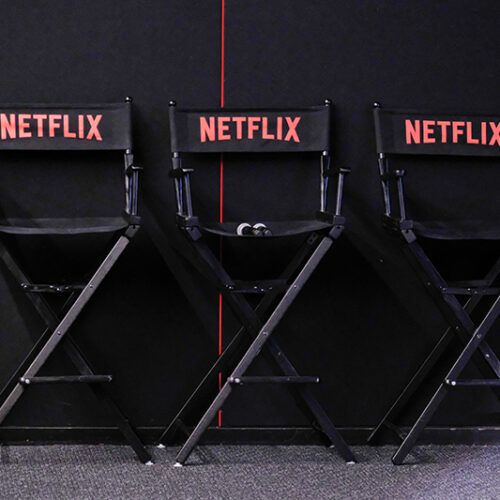Homosexuality In Nigeria: The Struggle To Survive
Homosexuals with HIV/AIDS are struggling to survive.
Since Nigeria passed a law criminalising homosexuality in January, Gordon Austin has faced attacks, abuse, arrests and extortion in the south-western city of Ibadan. And the legislation has had an even more insidious effect on the 25-year-old. He is HIV-positive: getting health care has become harder. “I am not safe going to public health centres because of who I am,” he says. “I would never tell them I am a gay man—they would deny me treatment.” To get life-preserving antiretroviral drugs, he has to lie about his sexuality. “I have to pretend I am heterosexual because of the stigma,” he explains. “I have to live a fake life, a life that is not mine, just to get the health care I need.”
Practising homosexuality was already a criminal offence before the Same Sex Marriage Prohibition Act was passed this year. But the new law casts its net more widely. It bans marriage and displays of affection between people of the same sex. It outlaws anyone who belongs to a gay club or helps gay organisations. And a clause in the bill can be used against those who provide health services to gays. Browbeaten by foreign aid donors, the government promised that gays with HIV would not be denied access to health care. Yet doctors are afraid of the consequences if they provide it, citing the law as a reason not to help.
Gay Nigerians say they are routinely turned away from hospitals. Many more are afraid to seek medical help in the first place. Local advocacy organisations such as the Initiative for Equal Rights have stopped issuing referrals to public-health institutions, lest people are “outed” by unsympathetic medics.
This may make it harder to contain HIV/AIDS. Nigeria has the world’s second-largest number of people with HIV. In 2010 it was estimated that 4% of the general population were afflicted; among gay men the figure was 17%.
While the public system fails to treat gays, some donor-funded clinics are working overtime. Population Council, a clean and well-equipped centre tucked discreetly away in Lagos, Nigeria’s commercial capital, takes referrals from across the country and has treated 3,000 people in the past year. It runs a second operation in the north.
Only a handful of such organisations exist, overburdened by the new law. In rural regions, where foreign aid is scarce, campaigners complain that they themselves have to pay to refer locals to faraway clinics. “Most people who are affected are young and cannot tell their family,” says Michael, a human-rights advocate in the south-eastern state of Enugu, where no gay-friendly care is available. “They cannot look after themselves, and there are no clinics. What we do now is take care of each other.”
About author
You might also like
New Yorker stands by claim that Trump joked Pence wants to ‘hang all the gays’
In a recent New Yorker profile of Vice President Mike Pence titled The Danger of President Pence, reporter Jane Mayer made a bold claim. In the extensive piece, Mayer relayed
Improved Sexual Health and Rights Advocacy Initiative (ISHRAI) Is Employing
ISHRAI is a Non-profit organisation working to advocate for the sexual reproductive health and rights of sexual and gender minorities by supporting, promoting and enhancing knowledge on issues around sexual
Netflix cancels production of Turkish series, ‘If Only’, due to pressure to remove Gay Character
Netflix has canceled filming on its latest Turkish original, If Only, amid pressure from local authorities to remove a gay character from the series. The eight-part relationship drama was announced










19 Comments
chestnut
July 17, 06:20Ok,I understand how sad it would be,for a person to be denied life-saving medical interventions,simply because of their sexuality. However, I wonder if this report isn’t just a little bit of propaganda. I say this because I’m a health-care professional,so to hear that gay men in nigeria are being denied ARV treatment…well,I find it odd. I’ve been providing ART services for over 6 years.obviously,I’ve encountered lots of HIV-positive individuals,both male and female( not less than 50 people in a day). However, not once have I had cause to investigate or discover d sexuality of these patients;there’s simply no reason for it;none of d forms or personal files hav any space for “sexual orienation” (prolly because such topics are generally avoided in Nigeria, or thought to be “fairy-tales”). So I’m wondering,these claims of gay,HIV-positive men in Nigeria,being denied treament just cause they’re gay…well,do patients go around telling health-care personnel abt their sexuality? (because no health-care professional in Nigeria is under any obligation to ask u, b4 giving u treatment). Or do d health-care professionals just look at ur face and body-language and decide: “hmm, dis one must be gay,so I’ll deny him treatment”(remember,information abt one’s sexual orientation has no space on a patient’s personal files and whatever…at least in all d facilities I’ve ever worked with).
“Gordon Austin”,the character(for lack of a better description) in d first paragraph of d article, says: “…I would never tell them I’m a gay man; they would deny me treatment…” Well,u wouldn’t hav to tell them ur sexual orientation b4 receiving treatment! He also complains abt not being able to be himself and having to live a fake life? He wanted to live a “real” life in Ibadan,NIGERIA? I wonder what sort of real life he was hoping to live and I wonder why it sounds new to him that (most)gay men in Nigeria hav to live a somewhat fake life(sad,yes; true?definitely!), not just in order to receive treatment,but in other to live without fear of castigation and stigma.
Honestly,this article sounds like it was compiled by foreigners. I mean,”gay nigerians say they are routinely turned away from hospitals”? Really?which hospitals in Nigeria are required to ask u b4 deciding whether or not to give u treatment? Lol. Sincerely I smell “asylum” somewhere in here.
Absalom
July 17, 06:48I’d just say that your comment, Chestnut, is really reassuring because for a long time I haven’t known how to respond to the stories that gay men are being denied treatment on grounds of their sexual orientation. I’ve wondered what kind of a doctor would do that! Although I think there are situations where you might have to tell the doctor HOW you got infected with an STI, and that might lead to at least a hint of your sexuality, especially for the receptive partner. (I guess one can always say he was raped.) Still, I’ve been hoping that stories like this are exaggerations born out of a genuine fear. This is Nigeria after all where anything goes, and, although I hope not, I won’t be too shocked if a doctor’s Hippocratic Oath (no offence) flies out the window just to preserve his religious/cultural sensibilities. We run something close to a jungle here.
pinkpanthertb
July 17, 07:26Indeed we do, Absalom. Indeed we do.
chestnut
July 17, 08:11Yea absolom, any rectal/anal STI is an indication of one’s sexuality (a penile STI can be explained away as coming from screwing a woman), but d article is talking specifically abt HIV, which is systemic and the same,whether in a man,woman,straight,gay,bisexual …whatever. So in d absence of any anal STI (and there are a lot of HIV-positive gay men who hav NO anal infections), I can’t picture a scenario where divulging sexual orientation will in any way affect d treatment choices.
xpressivejboy
July 17, 06:58So sad.
Well, Chestnut, if I must say anything as regards your comment, I know of centres and tertiary health institutions here in Lagos where forms that are filled for filing once confirmed +ve has boxes of source of infection (MSW, MSM) and some come as plain as (Hetero, Homo, Bi) these I saw on survey of three centres I would rather not want to mention their names. So, if your centre don’t, a lot out there do it as one of the ways to classify causatives.
chestnut
July 17, 07:43Xpressive,the truth is that any center that has provision for stating ur sexual orientation,is usually d kind of center that doesn’t discriminate against ppl of any orientation,rather they are d kind of NGO-assisted centers that discourage stigmatisation and promote equality for all genders and sexualities. Those are not d kind of facilities that d article is referring to. I believe d article is specifically referring to government-based hospitals that don’t really have it as a priority to capture and cater to d “alternative/oppressed” members of society.
trystham
July 17, 09:03my question is- If it has been established the patient is HIV+, why ask about sexual orientation in the first place? Of course its for some form of segregation. ‘We ONLY treat HIV+ gay ppl here’. ‘We do not treat HIV+ gay ppl here’. ‘We treat both gay n str8 ppl. We just want to use the statistics for demographic n ofofo sake’. Mtchewwww
sensuousensei
July 17, 09:26I cudnt have put it better. Thanks, chestnut
Chizzie
July 17, 06:57As much as i sympathize abit with this post much of it is over exaggerated and a bit dramatic. Shortly after I wrote the post abt HIV..I found out that my very close friend had recently been diagnosed as having HIV, I began to see the virus in a whole new light. .I should mention that his sexuality hasn’t stopped him from being treated or neither has it ever been an issue. ..he will begin ART next week in a general hospital, completely free of charge! In retrospect I sounded like a town crier of doom with the HIV article I penned here, the problem with HIV is not the virus itself but how it is portrayed!
we attach such a hopeless feeling of fear and dread to it that many choose to become oblivious abt it and in doing so become careless. The fact of the matter is u are more likely to die of malaria than u are of HIV even without treatment! Thypoid fever left untreated will kill in weeks…a bout of diahorrea ( can’t spell this) for 3days or more will kill u. Some ppl have such strong immune systems that they do not need ART till years later…while a small handful of ppl maintain such low viral loads to the point where the virus ceases to exist.
science has come such a long way in such a short time with HIV that I strongly believe that a cure is imminent! …
let’s try and focus more on the bright side of having HIV
and yes being gay in Nigeria is not a deterrent to receiving treatment. ..no general hospital /clinic will ask u of ur sexuality
pinkpanthertb
July 17, 07:37Frankly, I don’t know what to make of reports like these, whether they are exaggerated or not is something I try not to consider. Because on the one hand, I want to stick to nursing the hope that things can’t be so bad, so bad that we are a nation where health care has become so discriminatory. and then, on the other hand, I remember that the same nation fashioned a law that basically strips a gay person of any rights to deserved protection. When you get police officials who stand by while gay men are beaten to death, how much more doctors who let their spiritual beliefs cloud their judgment of a HIV-positive gay person’s case…
In all we do, diaris God o.
waitinForMyArabianPrince
July 17, 07:53okokokok. my sister and her husband are doctors and they say gay is not good. in fact, I was taken to a psychologist who is meant to support me. while telling them that I could sue them to court for hospitalizing me, she said to me, “chaii, u dis fine boi, u want to spoil your life abi?”. Imagine.
sensuousensei
July 17, 09:29Wait. They took you to a psychologist because u are gay? :-O
chestnut
July 17, 08:45Yes pinky,Naija is fucked up wen it comes to d issue of sexual-discrimination. I don’t doubt that there are nigerian doctors who are homophobic enuff to maim or hurt any gay person if they had d opportunity. I don’t even doubt that d myopic nigerian laws will back any health-personnel that refuses a person treatment,based on their (homo)sexuality. What I’m simply saying is: NOBODY WILL REMEMBER TO ASK IF U PREFER FUCKING MEN OR WOMEN B4 DECIDING TO TREAT YOU,EVEN THE HOMOPHOBIC DOCTORS! Most straight (Nigerian) health-workers will automatically that u’re straight and at most,will just ask whether u hav a wife or girlfriends- (personally,I know that’s where my questions end wen I’m counselling a patient; it usually doesn’t even occur to me that he might be gay except in OBVIOUS cases of overly effeminate body-language;even then,I ask them NOTHING abt their sexual proclivities b4 giving them treatment) – how u choose to address dis question depends entirely on u!
sensuousensei
July 17, 09:37A doctor should be the last person to stigmatize a gay person because if they were properly trained, they should have been taught that homosexuality is considered a normal variation of sexual orientation in population.
But whenever science and religion/culture fight, the latter almost always wins.
Williams
July 17, 13:31Homosexuality was still taught as a deviant sexual behaviour in school.That was 2011.Though the teacher,a young Psychiatry consultant said it was struck off DSM4/ICD 10 in the 80/’s/90’s as a mental illness.
sensuousensei
July 17, 15:19Taught as a deviant sexual behavior on what basis? Textbooks written in the last 15yrs don’t have it as a deviant sexual behavior. Such a lecturer was not teaching medicine but his or her own person beliefs and therefore the training in this regard was not “proper”.
Williams
July 17, 13:45#Hyperbole
Dennis Macauley
July 17, 16:07Chestnut is very correct. My company partners with the government on providing free antiretroviral drugs, so I know a bit about how it works. The registration forms that are filled before commences treatment makes no mention of sexual orientation.
The only challenge is that the NGOs who organize gay men into groups for counseling and treatment have gone underground. The fear that has become entrenched makes it difficult for people to trust them, and this throws a spanner in their works.
Other than that, I think gay men can access treatment without discrimination as such.
@sensei in my second year in college, I took psychology as a minor and we delved into sexuality psychology. When the professor referred to homosexuality as a “sexual disorder” I reminded him that as far back as was it 1951 the APA had removed homosexuality from the list of sexual disorders. It was a heated argument that he did not find funny, I politely (very politely) asked him to teach us psychology and not his opinion and beliefs.
In all sincerity I don’t blame Nigerians so much, they simply don’t know. It took America a long time to get to where they are today on equality so I think that as we progress in Nigeria people will become more informed and informed and the obnoxious discrimination will reduce
sensuousensei
July 17, 18:57True.